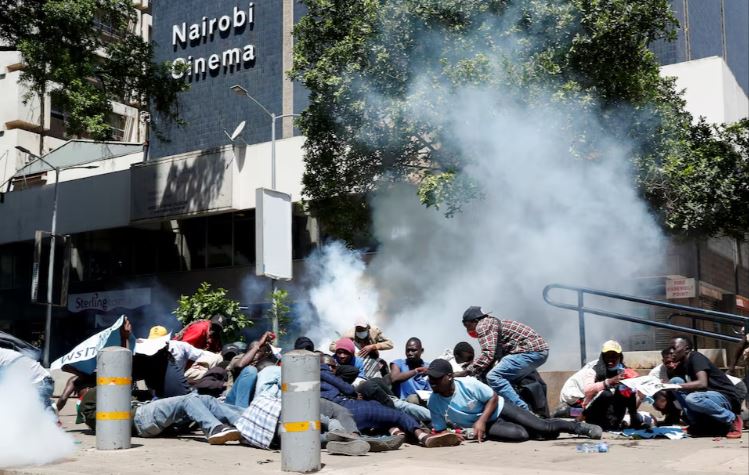73% of Kenyans believe government not doing enough to stop abductions, extra-judicial killings - TIFA Report

The findings show that a clear plurality of Kenyans, 35 per cent, believe the police and other state security agencies are mainly responsible for extra-judicial killings and abductions.
Nearly three-quarters of Kenyans believe the government is not doing enough to investigate and curb extra-judicial killings and abductions, with the police blamed most for the violations.
A report by Trends and Insights for Africa (TIFA) released on Thursday, shows that 73 per cent of citizens feel authorities have failed to act, compared to only 19 per cent who think otherwise.
More To Read
- Gen Z protests in Kenya: Key facts (2024-2025)
- Court recommends murder charges against three officers over 2022 Masimba killings
- Mungatana decries misuse of firearms by police officers in Tana River
- Kanja, DPP given seven days to produce missing security analyst Mwenda Mbijiwe
- IPOA probes fatal shooting of Kitale student at Kibomet pool hall
- High Court asked to compel State to produce missing security analyst Mwenda Mbijiwe
“There is also a clear, if not overwhelming, divide between those who support and oppose the Broad-Based Government (BBG) on this issue, with three times as many of the former giving the government credit for its handling of this issue as do the latter (37 per cent vs. 12 per cent). The figure among those who have no opinion about the BBG falls in between those of Kenyans who do,” reads the report.
The poll involved 2,023 randomly selected Kenyan adults aged 18 and above, interviewed in their homes across all 47 counties between August 23 and September 3, 2025. It was conducted face-to-face mainly in Kiswahili and English, with a margin of error of +/- 2.17 per cent.
The findings show that a clear plurality of Kenyans, 35 per cent, believe the police and other state security agencies are mainly responsible for extra-judicial killings and abductions. This view cut across political alignments, with 36 per cent of government supporters and 37 per cent of government critics sharing the same opinion.
Another 15 per cent of respondents blamed “political operatives and hired gangs,” while 19 per cent of government opponents specifically pointed to the President, compared to just six per cent of government supporters.
About 30 per cent of Kenyans said they were unsure who should be held accountable, while smaller proportions attributed responsibility to “unknown actors” (3 per cent) and “terrorists or criminal groups” (2 per cent).
TIFA noted that while subsequent political and economic events may have influenced public opinion since the survey period, the results provide an accurate reflection of Kenyans’ views at the time.
The release of the survey coincided with sharp criticism from former Chief Justice David Maraga, who accused President William Ruto’s administration of abusing the courts and misusing anti-terrorism laws against peaceful protesters.
Speaking after appearing at the Kahawa Law Courts on Thursday, where several youths facing terrorism-related charges were arraigned, Maraga said he was compelled to stand in solidarity with them.
“I attended court with other advocates for the youth to defend our Constitution. We stand with these young people because they are not terrorists. They are the conscience of our nation. The lives of these 70 youth have been turned into hell as they cannot do anything meaningful with terrorism charges on their necks,” Maraga said.
He decried that those who have not been able to meet the bond terms are languishing in cells since the Saba Saba commemoration.
“This is unacceptable. Ruto’s regime must stop abusing the courts and the anti-terrorism laws. I demand that the ODPP drop these sham terrorism charges against peaceful protesters. Our consolation is that it is a matter of time before we reclaim our country and reset it to constitutionalism,” he said.
Maraga, who has declared interest in vying for the presidency in 2027, said the arrests reflect a broader pattern of violations tied to government crackdowns on dissent.
The TIFA survey comes against the backdrop of anti-government protests that began with opposition to the Finance Bill in 2024, during which dozens of Kenyans were killed and scores injured, largely at the hands of police.
Other Topics To Read
The government has since announced measures to compensate victims of the protests, but the survey highlights growing public mistrust in state institutions’ willingness and ability to curb rights violations.
Top Stories Today













































